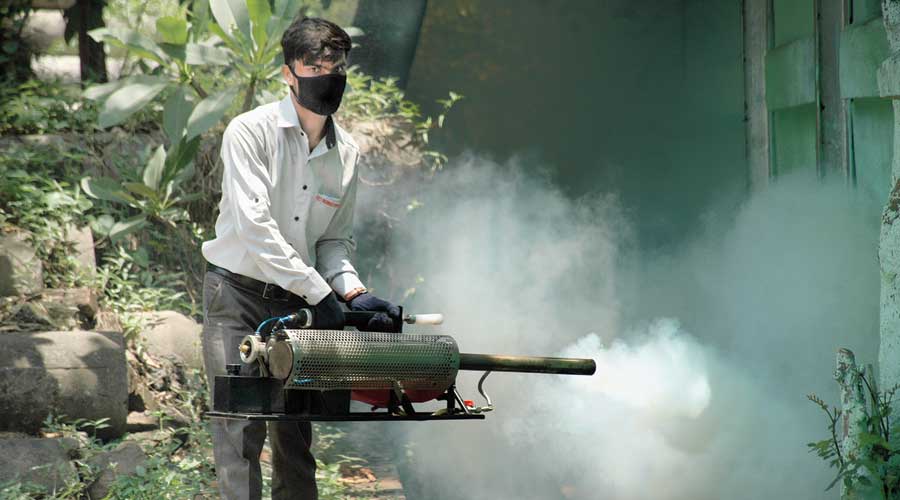As many as 564 cases of dengue have been reported in the Kolkata municipal area this year, deputy mayor Atin Ghosh said on Friday. Till last Saturday, the count was 436. Which means 128 cases were detected in the past week.
“There have been 564 dengue cases and over 3,000 malaria cases detected this year,” Ghosh said after a review meeting at the Kolkata Municipal Corporation headquarters on Friday evening. Mayor Firhad Hakim, Ghosh and senior officials of the KMC’s health department were at the meeting. Wards 81, 82, 84 and 106 were particularly affected by dengue, said Hakim, who is the councillor of Ward 82.
“Wards on both sides of Tolly’s Nullah are areas of concern,” he said. The KMC, he said, will focus on removing waste from along Tolly’s Nullah. The mayor stressed the need for a coordinated effort to combat the problem.
“Engineering, health, drainage and conservancy — all have to work together. Our men have to move around looking for mosquito breeding sites. We will use drones to spray larvicide in places that we cannot access,” he said.
If the owners fail to remove garbage from vacant plots, the KMC will do so. The cost incurred for the clean-up will be added to next year’s property tax bill. Locked and empty properties that turn into mosquito breeding sites have been a problem area of the corporation.
Late last month, three such properties were broken open by vector-control workers in the presence of police so the premises could be cleared. Two of the properties were in Tollygunge’s Suryanagar and Netaji Nagar’s Sanghati Colony. One of them was in Borough II, which covers the Sovabazar-Hatibagan-Shyambazar-Maniktala zone. On Friday, Hakim also urged people to visit the civic body’s health centres if they had persistent fever.
“Do not delay in getting treated. Visit our health centers if you have fever. Our centres are now equipped to do a platelet count test,” he said.
The dengue virus is spread by Aedes aegypti mosquitoes and the malaria pathogen is spread by female Anopheles mosquitoes. The WHO website says “disposing of solid waste properly and removing artificial man-made habitats that can hold water...” were among the measures to be adopted to prevent breeding of mosquitoes.
